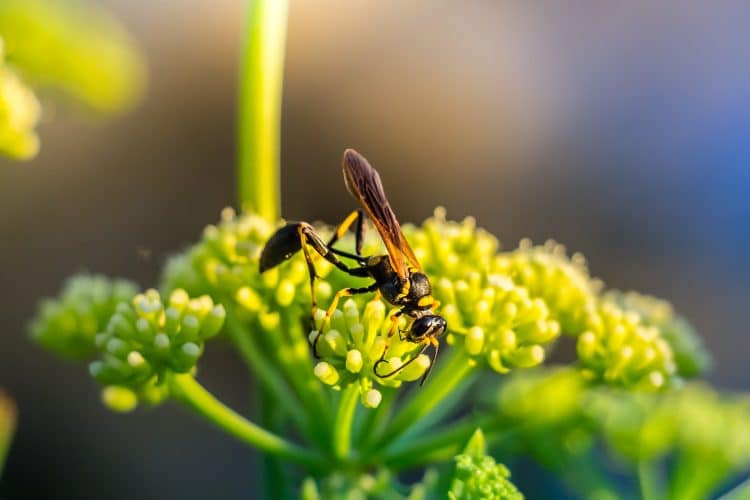Botanical insecticides are naturally occurring compounds present in plants. Plants use these compounds as a way to defend themselves from diseases and predators like insects. Botanical insecticides were widely used before the development of artificial insecticides and they have many benefits compared to them. [1]
Botanical Insecticide Types
- Pyrethrum: it is a dried flower head of a chrysanthemum flower. It has six insecticidal compounds called pyrethrins capable of inducing paralisis in insects. These substances are extracted from the seed cases and collected as an oleoresin.
- Rotenone: Rotenone can be found in the roots of Lonchocarpus and Derris Rotenone is isolated through acetone extraction and it is toxic to insects affecting their nerve and muscle cells.
- Sabadilla: Sabadilla is taken from the seeds of a tropical flower. The seeds contain alkaloids that cause insects to lose nerve function.
- Ryania: Ryania comes from the stem of a wood shrub and is produced into a dust or a liquid. Ryania acts as a poison to insects.
- Neem: Neem oil is derived from the seeds of Azadirachta indica also known as neem tree. Neem extracts serve as a feeding deterrent against insects.
- Essential Plant Oils: Essential plant oils such as lavender, eucalyptus, citronella and a few others are often used for their strong smell and insect deterrent properties. [2]
Pros and Cons of Botanical Insecticides
Botanical insecticides have their advantages and disadvantages, but it has been proven that they are more cost effective and are generally safer for humans, animals and environment than traditional synthetic insecticides. They can be especially useful in areas where traditional pesticides are not available or affordable. This kind of insecticides is eco-friendly because the break down of their molecules is relatively quick. This is beneficial for the grower health and they can be applied directly after the harvest decreasing risks for beneficial insects. [3] Nevertheless because of the rapid break down they may need multiple applications. Botanical insecticides don’t induce insect resistance as synthetic insecticides often do. Despite that some growing recommendations related to botanical insecticides haven’t been scientifically verified yet.
References:
[1] Botanical Insecticides | Radcliffe’s IPM World Textbook (umn.edu)
[2] Botanical Insecticides « Landscape IPM (tamu.edu)
Image: https://pikwizard.com/photo/flower-plant-leaf/aa88242b4956c3b7dea3ad374c969abd












